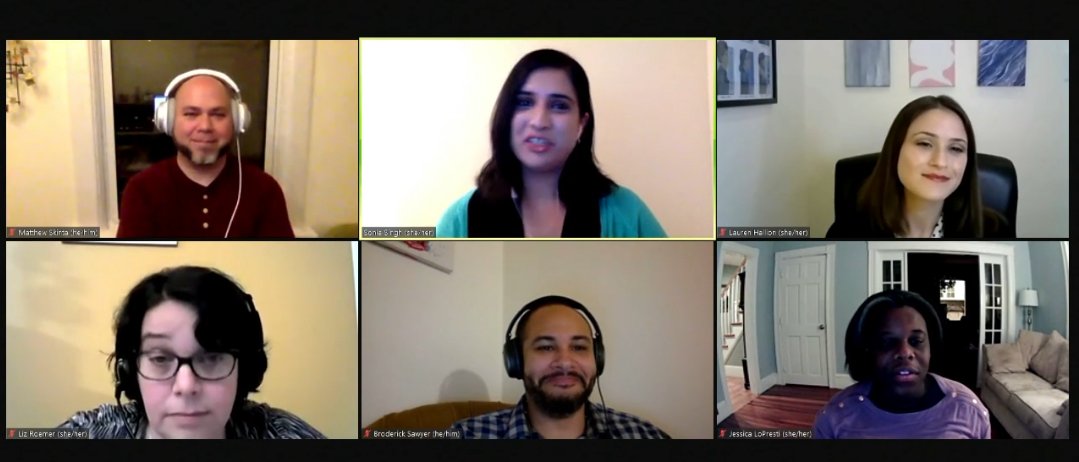This is such a good panel, with helpful tips for how to be a better ally. E.g., if you make a mistake, apologize, and do better next time. Apologizing profusely centers your experience and puts the onus on the other person to make you feel better. #ABCT2020 https://twitter.com/DrIlanaSvD/status/1329578307919241218
#Mindfulness can be a useful tool to help us as #allies notice moments of misstep (e.g., what am I reacting to right now? Why am I feeling shame?) and prompt us to act (e.g., apologize), rather than ruminating. #ABCT2020
Being an #ally involves choosing to turn towards the pain of #oppression when you could choose to step away. @liz_roemer #ABCT2020
Being an #ally allows you to live in the world as it really is. Pretending the world is different than it is makes us worse therapists, worse people. This is strengthening, important work #ABCT2020 #SGMABCT2020
The way that we are socialized to dehumanize oppressed groups is insidious — we need to carefully examine how our socialization detracts from / affects our acts of allyship #ABCT2020 #SGMABCT2020
Apologies and words only go so far. Action is what #allies can do that is really important and meaningful. #ABCT2020 #SGMABCT2020
Model your allyship for others. Return to and acknowledge your mistakes in the next meeting or class. Sit in your shame a little and show others how to acknowledge their own privilege #ABCT2020 #SGMABCT2020
As a mentor, be transparent with your trainees and show that you are doing your own work outside of the lab/clinic. Step up & advocate for your mentees even when its awkward #ABCT2020
As a mentor, acknowledge your own limitations and differences between your experiences and those of your mentees. Talk with your mentees about this; seek outside consultation when you're not sure. #ABCT2020
Mentors, be prepared to have uncomfortable conversations. Acknowledge that academia wasn't designed for people from marginalized backgrounds. Allow mentees to be mad about this — the system is unjust. #ABCT2020
To increase diversity in your predominantly white department/org, examine your whiteness. Become a place where non-white people are less likely to be harmed. Take trainings, pay people to consult, learn how to be a place that is strengthening and amplifying. #ABCT2020
Trying to work on these issues in your department in-house is akin to fixing systemic family issues without going to family therapy. Outside consultation is critical. Don't let $$ be a barrier. If there's enough money for another white faculty salary, there's money for this
What better prepares folks for being a clinical psychologist? The #GRE? Or lived experience with living in multiple worlds and experiencing oppression? #ABCT2020
We need to remember the role of a graduate mentor is really to teach people. It's not to accept mentees who already have all the publications and who can look good on our CVs. We can help break down systemic barriers to grad education in our grad acceptance decisions. #ABCT2020
Don't let your allyship end with reading. What are you going to do with that information and self-reflection? You can't wait until you know everything to do something. Action is key. #ABCT2020
Being an #ally means giving up #power. It sometimes means walking away from the table so that someone else can take your seat. #ABCT2020 #SGMABCT2020
When amplifying the voices of minoritized people, don't only see them through that minoritized lens. Hire those folks to talk about all of their areas of expertise, not just their marginalized identities. That's not allyship. #ABCT2020

 Read on Twitter
Read on Twitter


